Wounds to Bind
Wounds to Bind
A Memoir of the Folk-Rock Revolution
Jerry Burgan with Alan Rifkin
Foreword by Sylvia Tyson
ROWMAN & LITTLEFIELD
Lanham Boulder New York Toronto Plymouth, UK
Published by Rowman & Littlefield
4501 Forbes Boulevard, Suite 200, Lanham, Maryland 20706
www.rowman.com
10 Thornbury Road, Plymouth PL6 7PP, United Kingdom
Copyright 2014 by Jerry Burgan and Alan Rifkin
All rights reserved . No part of this book may be reproduced in any form or by any electronic or mechanical means, including information storage and retrieval systems, without written permission from the publisher, except by a reviewer who may quote passages in a review.
British Library Cataloguing in Publication Information Available
Library of Congress Cataloging-in-Publication Data
Burgan, Jerry, author.
Wounds to bind : a memoir of the folk-rock revolution / Jerry Burgan with Alan Rifkin ; foreword by Sylvia Tyson.
pages cm
Includes index.
ISBN 978-0-8108-8861-6 (cloth : alk. paper) ISBN 978-0-8108-8862-3 (ebook)
1. Burgan, Jerry. 2. Folk musiciansUnited StatesBiography. 3. Rock musiciansUnited StatesBiography. 4. Folk-rock musicHistory and criticism. I. Rifkin, Alan. II. Title.
ML420.B8835A3 2014
782.42166092dc23
[B] 2013043825
 The paper used in this publication meets the minimum requirements of American National Standard for Information SciencesPermanence of Paper for Printed Library Materials, ANSI/NISO Z39.48-1992.
The paper used in this publication meets the minimum requirements of American National Standard for Information SciencesPermanence of Paper for Printed Library Materials, ANSI/NISO Z39.48-1992.
Printed in the United States of America
When I woke up this morning
You were on my mind
Andyou were on my mind
Ive got troubles
Ive got worries
Ive got wounds to bind
So I went to the corner
Just to ease my pain
Said, just to ease my pain
Ive got troubles
Ive got worries
I came home again
But I woke up this morning
You were on my mind
Andyou were on my mind
Ive got troubles
Ive got worries
Ive got wounds to bind
And Ive got a feeling
Down in my shoes
Said, way down in my shoes
That Ive got to ramble
Ive got to move on
Ive got to walk away my blues
When I woke up this morning
You were on my mind
Andyou were on my mind
Ive got troubles
Ive got worries
Ive got wounds to bind
You Were On My Mind, words and music by Sylvia Fricker, adapted by We Five
Foreword
Sylvia Tyson
I n the second week of August 1965, Ian and I had just finished playing four nights at the Golden Bear in Huntington Beach, California, and a night at the Hollywood Bowl with Judy Collins, and were driving north to Portland, Oregon, on Highway 101. We were cruising through Big Sur and had the car radio tuned to a pop station but werent paying much attention. Suddenly we realized we were hearing my song You Were On My Mind, but definitely not our version of it, and the DJ was predicting this was going to be a huge hit for a group called We Five. If Id been driving, wed have gone off the road.
Those were the bad old days when publishers took 100 percent of publishing royalties and often didnt bother to tell songwriters when a song had been covered. I believe someone in the office of our manager, Albert Grossman, had mentioned to me that the song had been recorded, but not who by, and I had no idea it was going to be a single, let alone a hit. What followed was one of those happy situations that songwriters pray for, but that seldom materialize.
A little background here. In 1962, the two of us were hanging out in Greenwich Village with a bunch of folkies including this kid from Minnesota called Bob Dylan, whod impressed everyone by starting to write his own songs. I guess we all figured if he could do it, we could do it, and so we did. Ian started writing his first song, Four Strong Winds, in Alberts apartment sometime early in 1962. Not to be outdone, I wrote my first song, You Were On My Mind, a few months later. We immediately sent demos to Witmark and Sons, our publisher, but apparently they didnt see any urgency, because the songs werent officially registered until the spring of 64 when our second Vanguard album came out with Ians composition as the title song. In September of 64, we then recorded You Were On My Mind for our third album, Northern Journey . How We Five came to do the song is described in Jerrys book, so Ill leave the rest of the story to him.
Many songs remain very personal to the writer, but certain ones take on a life of their own. That was definitely the case with You Were On My Mind. From the moment the We Five single took off, I felt as if the song had totally left my hands. The singer/songwriter phenomenon was just beginning back in the early 60s, and unlike the Cole Porters and George Gershwins of the 30s and 40s, the writers of hit songs in the 50s and 60s were seldom if ever recognized by the public. When I perform the song, I consistently meet people who are surprised to learn that I wrote it. In fact, at times its been a drawback. When Ian and I toured England in 66 with Gordon Lightfoot and the Ian Campbell folk group, we were opening our segment of the show with You Were On My Mind and getting hisses and boos from the audience, because it had been a big copycat pop hit there for the singer Crispian St. Peters. The hardcore British folkies, having no idea Id written it, werent shy about letting us know what they thought of a folk group doing a pop song. To add insult to injury, St. Peters had naively put his name on it as writer, a misstep that Witmark and Sons swiftly rectified. This was only one of many covers by artists as diverse as Barry McGuire and Paul Anka, the most recent by Canadian singer/songwriter Serena Rider. There were successful French and Italian versions, and Italy is still one of the major royalty sources to this day (I get occasional plaintive calls from my accountant asking if I could write another one of those). Its been used several times as a theme for commercials.
As strange as it may seem, I dont recall ever meeting any of the members of We Five. For some reason, our paths never crossed, although it might have had something to do with the great east/west divide in the musical approach at the time. When Jerry initially contacted me a couple of years ago, he seemed a bit nervous. He had heard, way back when, that I was unhappy with the changes the group had made to the lyrics. Its true that I wasnt pleased with the changes, but I was well aware of the cold, hard facts of AM radio at the time and that the words drunk and sick wouldnt pass muster. In retrospect, I can hardly say I regret it. In the twenty-first-century world of Google and Twitter, Ive read many comments from fans of the song saying how much it meant to them, including a lengthy analysis by some college professor who claimed (in the absence of the fatal words drunk and sick) that the line Went to the corner just to ease my pain pertained to shooting heroin, and that the whoa, whoa parts were actually woe, oh woe. I would suggest to him that the song was written in the very early 60s and that, other than a little grass, booze was the drug of choice for most of us. Heroin and coke didnt rear their ugly heads until a lot more money was being earned.
And its the moment when big dollars entered the equation that this book deals with: the beginnings of a lucrative merger between folk and pop/rock, when that east/west divide started to narrow and the rough-edged lyrics and melodies of the hardcore folkies gained broader appeal (and even some Hollywood glamour). Although We Five provides the context, this is much more than the simple biography of a band. Jerry Burgan, along with Alan Rifkin, has provided an entertaining and informative look into a transformative scene that later added country music to the mix and blossomed into groups like the Byrds, the Flying Burrito Brothers, and Creedence Clearwater Revival.
Next page
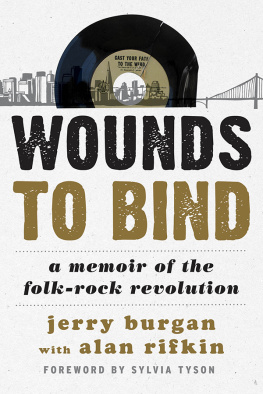
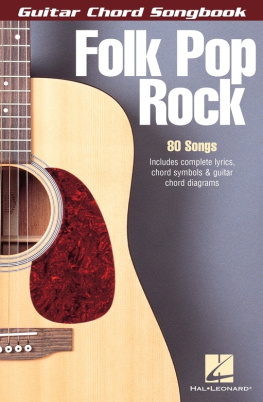
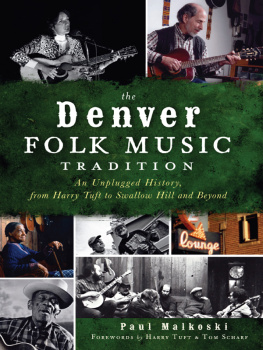

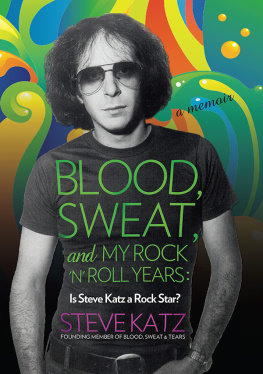

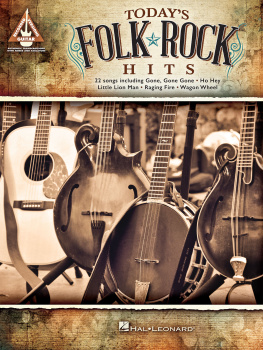

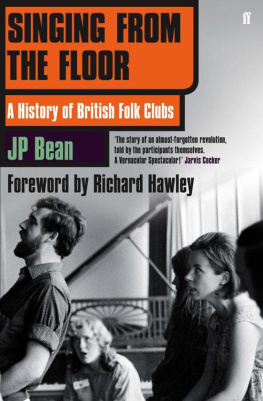
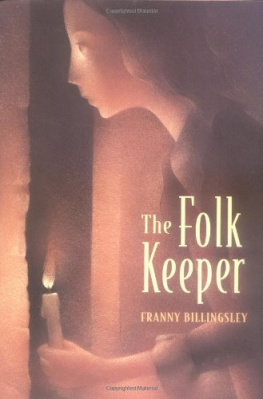
 The paper used in this publication meets the minimum requirements of American National Standard for Information SciencesPermanence of Paper for Printed Library Materials, ANSI/NISO Z39.48-1992.
The paper used in this publication meets the minimum requirements of American National Standard for Information SciencesPermanence of Paper for Printed Library Materials, ANSI/NISO Z39.48-1992.